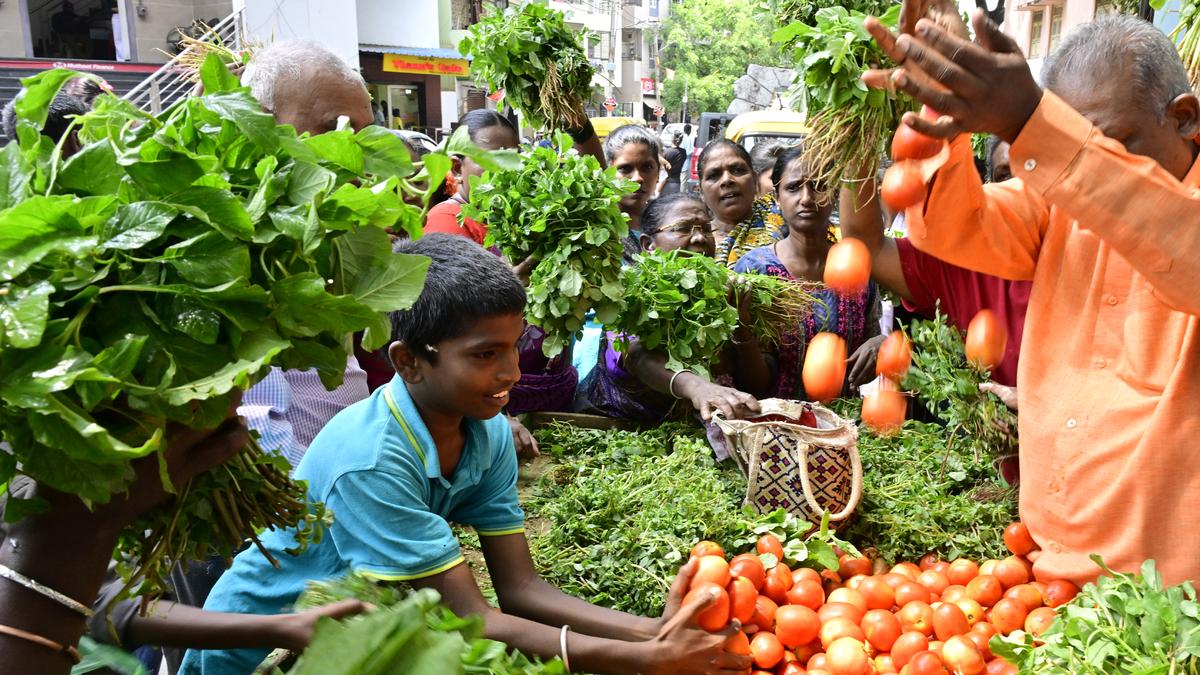
Many vegetables breach ₹100 per kg mark in Bengaluru as weather plays spoilsport
The Hindu
In HOPCOMS, selling price of beans skyrocketed to ₹220 per kg from ₹70 per kg last week.
After vegetable prices kept going up for months due to drought in Karnataka, consumers were relieved when the skies opened. But now, prices have again gone up with many vegetables crossing the ₹100 per kg mark in Bengaluru, much to people’s dismay.
After the price of beans came down from ₹250 to ₹150 per kg a couple of weeks ago, it is again selling at ₹180 - ₹220 per kg in retail markets in Bengaluru. In wholesale markets too, the price went up from ₹80 per kg to ₹120 per kg. The ever fluctuating tomato prices have touched ₹80 - ₹100 per kg from almost ₹50 - 60 per kg a few days ago. In K. R. Market, tomatoes are being sold at ₹80 per kg. Brinjal, radish, capsicum and onions have also breached the ₹100 mark in retail markets.
“Despite bad weather and poor yield, prices continue to be low in wholesale markets,” said N. Manjunath Reddy, a vegetable trader in K.R. Market. While the hike in fuel prices have not had much of an impact on vegetable prices yet, it can have an effect in the coming days.
In HOPCOMS, selling price of beans skyrocketed to ₹220 per kg from ₹70 per kg last week. Capsicum went up from ₹65 per kg to ₹140 per kg. An official at HOPCOMS attributed the price rise to weather fluctuations in the last few months. The supply of beans and tomatoes has been low for quite some time while demand continues to be high. Now, with rain being added to the equation, the prices skyrocketed.
The wholesale price of ash gourd, whose price usually hovers between ₹10 and ₹15 per kg, has jumped to ₹30 per kg.
“When the price of ash gourd goes up, that is when you know that vegetables are getting expensive. This is a vegetable which is not much in demand unlike the others. But, as it rained exactly when the crop was supposed to be harvested, supply to the markets got severely cut,” explained Raja, a trader in K.R. Market.
Traders believe that it might take another three months for the supply of vegetables to stabilise.

The Karnataka government has drafted a comprehensive master plan for the integrated development of Kukke Subrahmanya temple, the State’s highest revenue-generating temple managed by the Hindu Religious Institutions and Charitable Endowments Department. The redevelopment initiative is estimated to cost around ₹254 crore and aims to enhance infrastructure and facilities for devotees.












